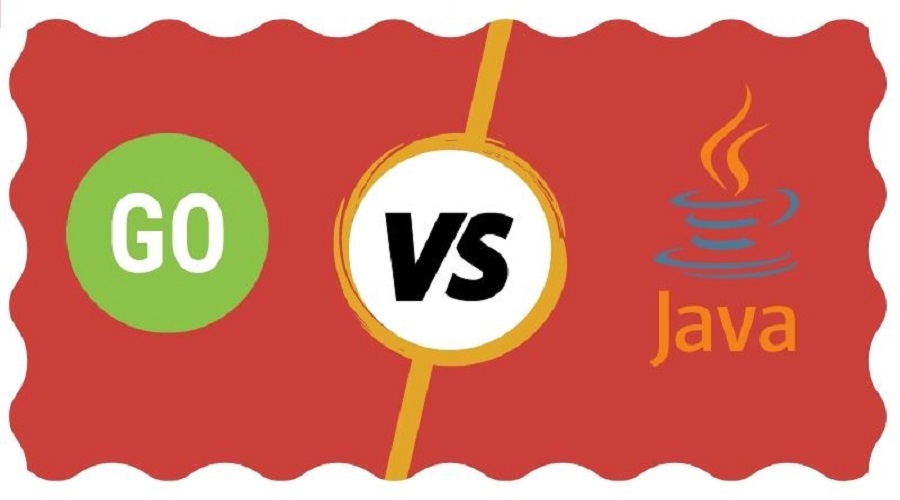- February 17, 2022
- No Comment
- 167
Want To Know Some Key Difference Between Go VS Java

Those students or beginners who are studying computer science. They are curious to know the difference between “Go vs Java”. So, it is clear and easy to understand. First of all, Java is an older object-oriented programming language. It has a huge library and community. On the other hand, Go (or Golang) is a multi-paradigm language with improved concurrency support.
If you need any Java Assignment help, you can discuss your requirements with our experts anytime and get A+ grade solutions.
Although Go is quicker than Java, Java has more features and greater support. For server-side apps, both are employed. Both languages have their work and features. You have to choose one for your career by learning about the difference between them.
Let’s Focus On The Language GO (Golang)
Go is a procedural programming language. It was created by Google’s Robert Griesemer, Rob Pike, and Ken Thompson in 2007. However, this language was the first one. It that discovered as an open-source programming language in 2009. Packages are used to construct programs to handle dependencies efficiently. This language also allows the environment to acquire patterns in the same way as dynamic languages do.
Have a look at some of the key points that are –
- Static – The main feature of the Go programming language is variable types. That is defined clearly, reducing the chance of runtime mistakes.
- Compiled – Any programming language in which source code is immediately converted into machine code, resulting in shorter runtimes.
- Memory Safe – A term used to describe programming languages that offer robust bug and security precautions.
- Garbage collection – A memory-safety feature that automatically deletes things from memory that can no longer be a reference.
- Structural – A structural type system in which the language detects. If a variable is equivalent to a certain variable type based on its context.
- Concurrency – In This, a program has the capacity to accomplish numerous tasks at once.
Do You Know About Java And Its Key Features?
Java is a platform that is quite popular. A platform is a software development and execution environment for programs written in any programming language. Java language is quick, and dependable. The language also has a feature of a secure programming language. Java is utilized from desktop to online applications, mobile phones to the Internet.
Have a look at some java key features that are –
- Object-oriented – Java language is a programming paradigm in which reusable code is produced. And modified via the use of unlearned objects with characteristics and functions.
- Class-based – Objects in a class can inherit characteristics from the class. That is a feature of object-oriented programming (OOP) language.
- WORA – A term that refers to Java’s ability to operate on any machine. That has a Java Virtual Machine (JVM), such as smartcards, televisions, and mobile phones.
- Loose coupling – It is a programming strategy whose goal is to have fewer dependencies. Enabling distinct software components to function independently without endangering other parts.
Want To Choose The Best Programming Language Between Go VS Java
Speed and readability
Java is a programming language that has been available since 1995. It is utilized in a wide range of devices. As a result, there is a lot of source code that may reuse. You may also copy, paste, and go because much of the Java code is open-source if existing code suits what you’re attempting to do. That considerably speeds up the development of functioning Java applications. Java is a well-known and reliable language. That implies you can have a reflection where your code may check for errors by looking back at itself during runtime.
It isn’t an issue in Go. Its library is significantly smaller than Java. Yet it all works and is built to meet current development standards. You won’t have to move through outdated module records. It’s built on today’s standards. Go is a more concise and forgiving programming language. It’s designed for ease of use and scalability. It eliminates extra brackets and parentheses. But it also reduces the margin for error. That means you’ll spend less time typing and more time troubleshooting. Go is not object-oriented in the same way that Java is.
Performance
Java and Go language run once when you input them. Most examples show that Go is somewhat quicker than Java. Before a program can be compiled to machine code. Java must first be converted to bytecode by the Java Virtual Machine. As a result, It slows it down in a couple of seconds.
Because it operates like C, Go runs quicker than Java. It’s compiled into machine code and then runs. Another factor is Go’s memory management abilities. Instead of references, it uses pointers. Garbage collection slows down run code; however, Go’s garbage collection is carefully tuned to avoid garbage collection delays.
Java uses a garbage collection system that runs regularly. Both are good at memory optimization. But Go’s garbage collection is a little more polished and well-engineered.
Application
Java philosophy says, ‘write once, run anywhere.’ Due to this feature, Java is portable. Because the JVM is responsible for interacting with the hardware. The code should function in any application. In comparison, executing the identical lines of code on any other system. Sometimes it becomes more complicated than the program written once. So, it executes anywhere. However, Java is still based on portability. And it is used in a variety of places, including user-facing devices such as ATMs. Java is also the standard programming language for Android phones.
On the other hand, Go is built for simplicity and scalability. The notable feature of GO is its strong multithreading capabilities. It can effortlessly manage several concurrent tasks. It also has a specific mode that checks for run race conditions by running your code in binary. This built-in functionality ensures concurrent safety in your code. Java has multithreading capabilities as well. But they aren’t as advanced as Go. The threads and synchronization primitives in Java perform the job. But not as well as Go’s. Making and destroying threads in Java consumes too much memory. And on a server, each webpage hit requires its thread.
Features
The Java community has been utilising the language efficiently. The various features that are to be introduced to the language. And many of them have been implemented too. As a result, the fit isn’t always optimal. Java is likely to include any functionality you want. It was built somewhere along the road by a Java programmer.
Go, on the other hand, is intended to be straightforward. It’s designed to have fewer features. Everyone can understand Go since it uses the same or comparable code. Structure as the previous coder, allowing them to pick up where you left off. That may appear to be a bit restrictive. It results in fewer problems while working as a group.
Conclusion
Some people believe that they must change their minds and move towards the new technology. They want to work according to the latest trend. So, making a habit of learning new things is also a good idea. The decision to accept a new technology should be based on merit rather than a dislike of learning. So, Java is the language that students or professionals want to learn.
Go language, on the other hand, isn’t an easy language. It’s quicker, more streamlined, and more friendly. If you’re just getting started with coding, Go is the way to go. If you need to get something done, it has to work for the sake of working. Java may be the answer. So, for choosing the best language between GO vs Java, you must learn and understand both languages.





